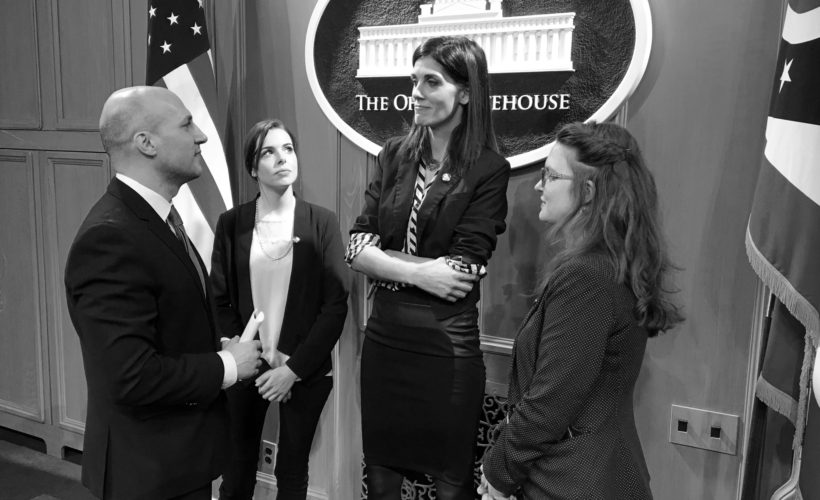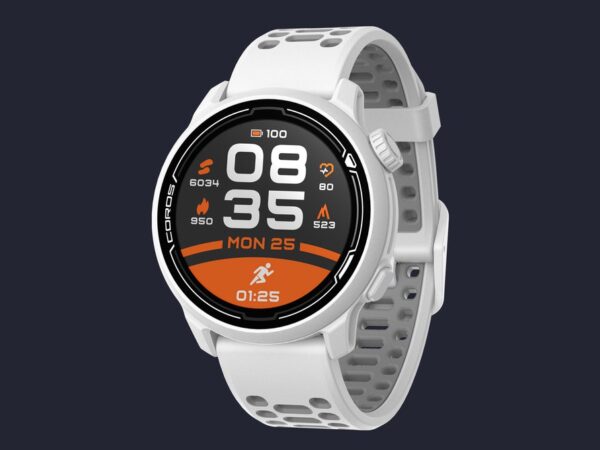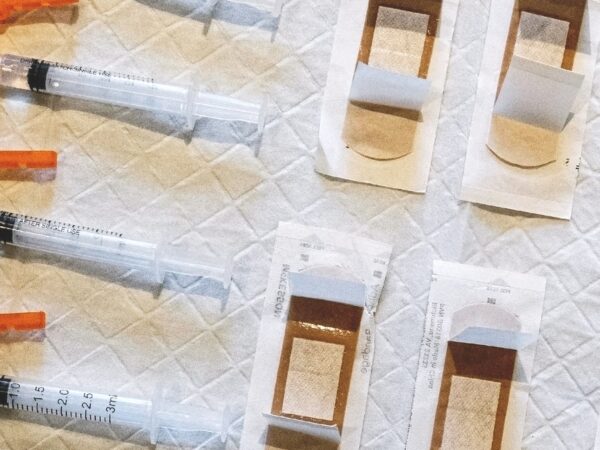Katelyn Bowden was holed up in her mother’s basement watching Stranger Things when she got a Facebook message nobody wants: Someone had gotten ahold of nude photos of her and posted them on the notorious image sharing website Anon-IB. “I recognized the photos and confronted my ex,” Bowden says. “But he said his phone was stolen.” That sounds like an easy lie, but it this case, it was true. And so the hunt began.
Bowden is a 32-year-old bartender in Ohio, and at the time didn’t think of herself as especially internet savvy. Social media was about as deep into the web as she ever went. A friend taught her how to do a Google image search to find the source of the photos and landed on the porn site xHamster, where the images were posted by a man she had been messaging with. The username was identical to his Xbox handle. “He was only talking to me to get the photos. He admitted to stealing the phone, he fully admitted to all of this,” Bowden says. “But when I went to the police, they said, ‘Did the ex file a police report for the missing phone? Because that’s the only crime that was committed here.'” The ex hadn’t, and Bowden was left without recourse. (Local police didn’t respond to a call seeking comment.)
Unless you’re a celebrity or in a big city—and often, even then—this is what could happen when you’re a victim of nonconsensual pornography. Only 38 states and DC have laws to deal with revenge porn, and Ohio isn’t one of them. Even in states with effective legislation, law enforcement is woefully ill-equipped to fight or even understand the issue. Copyright infringement and telecommunications harassment laws don’t address the hurt and violation of the crime, and they often don’t carry penalties harsh enough to deter posters. And worse, this isn’t a niche issue: One study found that nearly 1 in 25 Americans has been a victim.
“Culturally, we’ve taken a huge hit,” Danielle Citron, who teaches law at the University of Maryland, told WIRED last March. “Getting people to take this seriously can feel like banging your head against the wall. We’ve been here before with domestic violence and sexual harassment in the workplace. It’s so depressing.”
Like everything on the internet, nonconsensual pornography is a global problem. But not all authorities are as baffled by the crime as the ones Bowden dealt with. Today police in the Netherlands announced they’d confiscated Anon-IB’s servers, effectively shutting down the site following a year-long investigation into the case of a woman whose images were stolen from the cloud and posted on the forum. Now that they have the server, they are beginning the enormous task of identifying and notifying the Dutch women whose images have been distributed. “We wanted the forum taken down because of the material,” says communications director Robbert Salome. “And because of the way it was used by people: posting photos of women, and helping each other out with hacking accounts.”
This is certainly a victory for nonconsensual porn victims, but it might be a short-lived one. These images have a way of finding their way back to the web. Take Bowden’s case: Even though a friend got Bowden’s photos taken down from Anon-IB, she wasn’t in the clear. Shortly after the pictures were removed and Bowden thought the terrible experience was over, she got another Facebook message. The images had been posted again. This time, Bowden was determined to fight back. Anon-IB revenge porn threads tend to be sorted by location: a state, a city, even a high school (more on that later). “I scrolled down, and I see faces and body parts of a bunch of people I know,” Bowden says. “It really was so shocking.”
One of them was BeLinda Berry, a victim advocate from the same area. (Bowden asked that her location not be revealed.) “I had a real shitty week. My boyfriend and I had broken up, my childhood cat died,” Berry says. “And then I got a message from Katelyn.” Berry was all the more blindsided because her photos weren’t even taken in a sexual context—they were from an artistic shoot she’d done over the summer. According to Berry, she and Bowden became instant comrades. “This is going to keep happening,” Bowden said. “By the looks of this website, there’s more of us than them. We got to do something.” So they founded Badass—Battling Against Demeaning and Abusive Selfie Sharing—to bring victims together to take action.
Badass Begins
That was August 2017. Now Badass is a nonprofit that Bowden and Berry run as president and vice president, respectively. Bowden’s longtime friend (and Ohio attorney) Kate Venable serves as the group’s secretary, treasurer, and legal advisor. Badass’ membership—which calls itself the Badass Army—is now pushing 850 people from across the US and more than a dozen other countries. It started as just a small Facebook group made up of victims of the same Ohio Anon-IB thread Bowden and Berry were, but as they identified and contacted victims elsewhere, recruitment proved surprisingly easy. “I don’t think we had a clue of how big we were going to get,” Berry says, adding “I think the #MeToo movement has been a huge motivating factor. People don’t want to suffer in silence anymore.”
For the Badass Army, speaking out can take myriad different forms. Some just want their privacy back. “Most people want their pictures down as soon as possible,” says Venable. Others want to take different routes. To help, Venable comments on Badass’ Facebook page to demystify what she calls the “big, scary words.” In practice, that’s stuff like walking people through DMCA takedowns (aka getting posts removed on the grounds that they violate the Digital Millennium Copyright Act), and how to file a restraining order against your ex, your stalker, or whomever is victimizing you.
“People have lots of different needs from us,” Berry says. “We also work alongside sex workers and cam girls who have been doxxed and just want their names removed from their images.”
Free and accessible legal advice is vital when dealing with violations few people fully understand and only some states recognize. That’s why Badass took their mission to Columbus, Ohio to ask legislators to pass an anti-revenge porn bill and also to make sure they grasped the complexities involved. “Victims often get victimized twice by jurisdictional issues,” Berry says. “If they live in Cincinnati but their poster lives in Cleveland, the victim is responsible for traveling and taking off work to report it. It’s one of the things we’d really like to see changed.”
For Bowden and others, demonstrating how to navigate the swamps of Anon-IB or Discord (another platform for gamers that’s also popular with revenge porn posters) was first priority. Then the Badass Army had to decide what to do with that knowledge. “We had hundreds of people all brainstorming together on Facebook,” Bowden says. “We started by flooding threads with boner killers.” What’re those, you ask? Well, they’re Shrek, basically. Apparently, Anon-IB users do not find millennials’ favorite character to ironically adore pleasing, so the Badass Army organized a “Shrek Raid” in an attempt to drown out revenge porn posts.
Getting Results
Badass didn’t rest on their ogreish laurels. “I’d been using Discord as a way to play Pokémon with my kids,” Bowden says. “Then we uncovered a local group sharing photos of girls who were still in high school.” When she told the city police, they said, “What’s Discord?” When they transferred her over to someone at Ohio’s Bureau of Criminal Investigation and she mentioned Slack, they said “I don’t even know what that is.” So she taught them.
With her help, police arrested three men for sharing nude images of a then-15-year-old girl last month. Their charges? Telephone harassment and complicity—first-degree misdemeanor charges—not child pornography. (When asked about the case, a spokesperson for Discord told WIRED “sharing of nonconsensual pornography is clearly prohibited in our terms of service and community guidelines. Though we do not read people’s private messages, we do investigate and take immediate action against any reported terms of service violation by a server or user. Non-consensual pornography warrants an instant shut down on the servers whenever we identify it, as well as a permanent ban on the users.”)
The feeling of bittersweet victory is familiar to Badass. It colors everything they do—even alerting people who don’t know yet that they’re victims. And then, once they do, helping those people understand what they should do next. That’s nonconsensual pornography’s status quo: Not only is the crime frequently misunderstood or dismissed by law enforcement and legislators, people have a nasty habit of delivering the blame back to the victims. “Victims are reduced to a single image. I’m an advocate, but to a lot of people I’m just some bitch with my nudies on the internet,” Berry says. “You are allowed to be sexual and still expect that those pictures are safe and confidential and consent will continue.”
The bulk of the changes these women are calling for need to be done in the minds of the public as much as they need to happen in the minds of legislators and law enforcement. As the adage goes, politics are downstream of culture. Dutch authorities seizing Anon-IB shows authorities are catching up—in the Netherlands. It’s a win, but a small one on a big internet. Nonconsensual pornography at large can’t be addressed fully until victims can turn to their families and communities and get support, rather than confusion. That’s what the Badass Army wants to see.
“I’m the mother of two daughters. This is all I do now,” Bowden says. “If I can rid the world of one form of sexual assault then I’m doing a good job for them.”
More WIRED Culture
- The scientist who wants to bring Star Trek values to congress
- Inside the life of a professional Dungeons & Dragons dungeon master
- The Wikipedia competitor that’s harnessing the blockchain for epistemological supremacy
Source:WIRED











